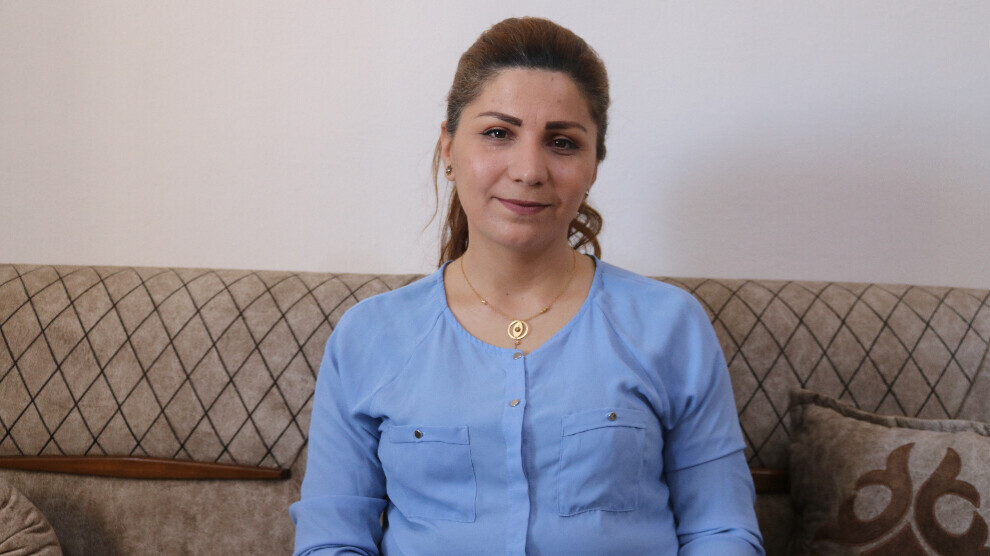Zozan Bekir: The Rojava Revolution has united Kurdish people divided by the Treaty of Lausanne
Zozan Bekir, coordinating member of the Kongra Star says the Rojava Revolution has united Kurdish people divided by the Treaty of Lausanne.

BERÇEM CÛDÎ
Kobanê- After the Treaty of Lausanne was signed by some countries, including Turkey and England on July 24, 1923 in Lausanne, Switzerland, at the end of the First World War, Kurdistan was divided in four parts, among Iran, Iraq, Turkey and Syria. As the 100th anniversary of the treaty is approaching, Kurds and their friends have held panels, workshops and protests all around the world to express their reactions to the treaty and to give the message that they will not allow another treaty to be signed against Kurds.
In an interview with NuJINHA, Zozan Bekir, coordinating member of the Kongra Star, said that the Kurdish people in four countries have been subjected to all kinds of assimilation and genocidal policies since the treaty was signed.
‘A century of persecution began following the signature of the treaty’
“A century of persecution began following the signature of the Treaty of Lausanne,” Zozan Bekir said, “This conspiracy has existed for a century. There are many issues to be talked about. For a century, the Kurds have been fighting for their rights and the freedom of Kurdistan while states have constantly attacked them. Kurds have been attacked in four parts of Kurdistan, especially Northern Kurdistan. In Northern Kurdistan, the Kurds have been subjected to genocidal operations and massacres; hundreds of Kurdish people were burned down and people were forcibly displaced from their villages. Now, dozens of women, young people and old people leading their society are behind bars. The situation is the same in other parts of Kurdistan.”
‘The July 19 Revolution is the revenge of a century’
Zozan Bekir thinks the best response to the Treaty of Lausanne is the revolution started in Rojava in July 2012. “The July 19 Revolution is the revenge of a century. The aim of the treaty was to annihilate the Kurdish people by dividing them. But the Rojava Revolution has united Kurdish people divided by the treaty. In the lands that were divided a century ago, not only the Kurdish people, but people from all nations and religions in Rojava have united after the Rojava Revolution. The Democratic Nation system developed by Kurdish leader Abdullah Öcalan has been successfully implemented in North and East Syria.”
‘No power can deny the existence of the Kurds any more’
Zozan Bekir emphasized that they have been fighting to make the 21st century a democratic and free century. “In the 21st century, the Kurdish people started a revolution. Kurdish women resisted and now they have become a role model for women all around the world. For this reason, this century will be a different century. No power can deny the existence of the Kurds, the resistance of women and the Rojava Revolution any more. The July 19 Revolution has led the change and transformation of the Middle East and Kurdistan and it will continue to lead the change and transformation. We will keep strengthening our revolution and protecting its achievements.”
